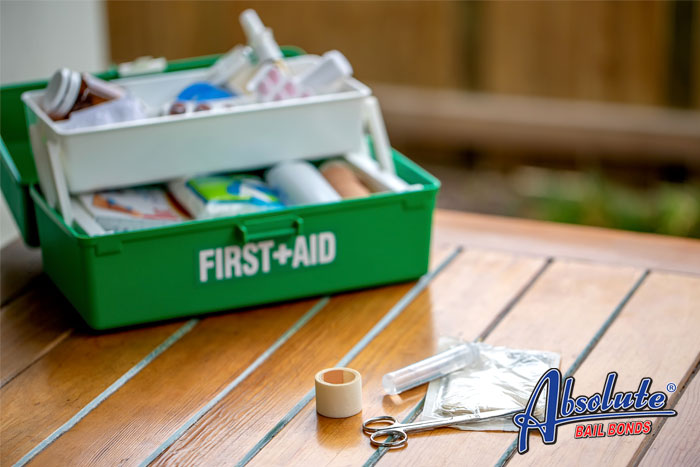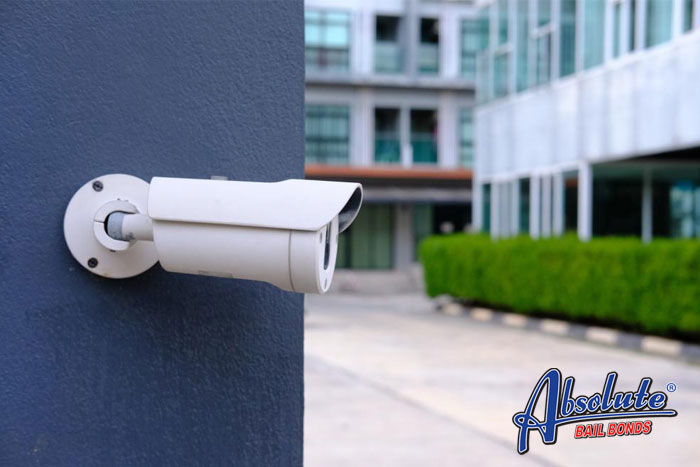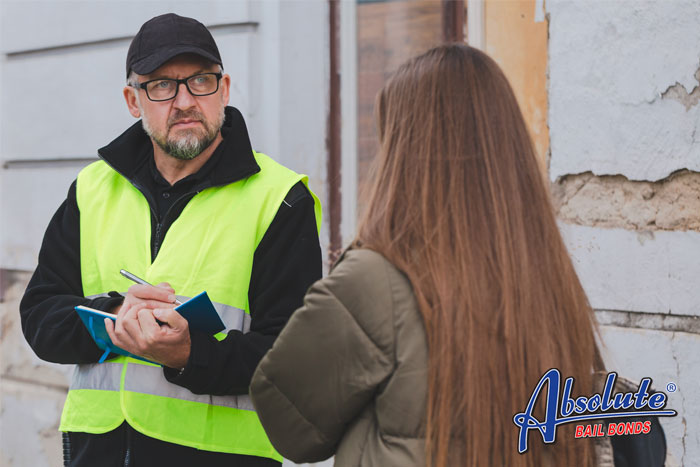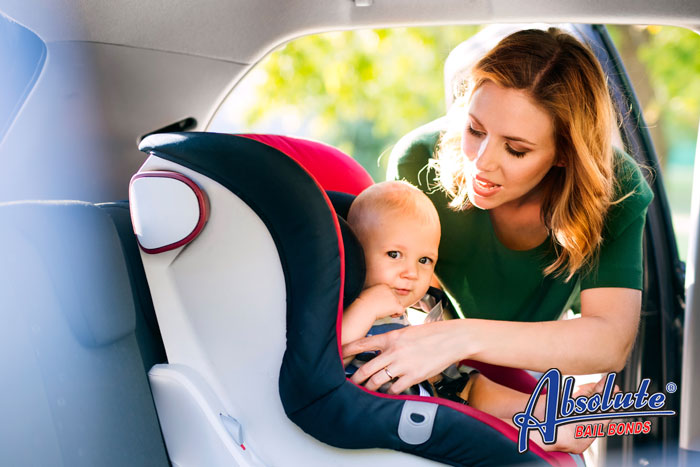
Staying Safe During California’s Wildfire Season
Each year, California has wildfires that attract national and sometimes even international media attention. The various media channels like to talk about what might have caused the wildfire, how big it’s gotten, and how teams are desperately working to fight it, as someone who lives in California, you’re first priority is doing everything possible to keep yourself and your loved ones safe during this year’s wildfire season.
Prepare Early
Don’t wait until you can hear the roar of the wildfire bearing down on you to start preparing. Wildfires spread quickly and they can also start quickly. Don’t wait until you’re in a high-risk area to start preparing for a wildfire. As soon as you move to California, you need to create start preparing for the possibility of a fire.
Early California fire preparations include:
- Turning your property into a defensible space
- Having an evacuation plan in place
- Keeping your vehicle prepped in case you have to evacuate
- Having a bag packed with life essentials in case you need to evacuate
- Making sure your personal property is covered by property insurance
Creating a Defensible Space
You want to surround your property with a defensible space. This space serves as a buffer between an approaching fire and your home. The space shouldn’t have any items or vegetation that’s likely to burn. The defensible space should extend at 30 feet past your house.
Packing Evacuation Supplies
You don’t have enough room in your car for all of your personal belongings. Limit what you need to one bag per person. Most of the time you can keep his bag in your closet, but if it looks like there is a chance that you’ll have to evacuate, stow the emergency fire bag in your car. Fire moves quickly so each second you save is important.
Items you should have in your emergency fire evacuation bag include:
- A change of clothing
- Cash/credit cards
- An extra charger for your cell phone
- The contact information for your insurance company
- A first aid kit
- Any medication you take
- Water
- Food
- A flashlight
Keep Tabs on your Neighbors
Fire doesn’t care who it hurts. It’s up to you to keep in touch with your neighbors and make sure that they’re able to protect themselves from a wildfire. Whenever possible, offer to help them evacuate. Taking a few seconds to contact your neighbor’s emergency contact, or helping load up their car helps save lives.
Prepare your Pets
You can’t afford to forget about your pets during an emergency fire evacuation. They can’t fend for themselves. You should also be prepared for even the most docile pet to become stressed as you evacuate. They might not understand exactly what is going on, but they do know that a fire is approaching and that you’re stressed.
Lock your pets in a different part of the house while you prepare to evacuate. This prevents them from bolting out the door and getting lost while you’re packing up your vehicle. When you’re ready to load your pets in the car keep them leashed or in a carrier. Don’t assume they will just follow you. Each time you stop the car for gas, make sure your pets are restrained before you get out of your car.
It’s a good idea to get your pet micro-chipped and to write its name and your phone number on their collar before you evacuate.
Before you drive away from your home, take a couple of seconds to double-check that all people and pets are loaded in your car.
Even though it’s hard to stay calm when you’re evacuating, you really need to. The calmer you can keep yourself in this situation, the smoother the evacuation will go.

California Earthquake Survival Tips
California is known for its earthquakes. Unlike wildfires which can be somewhat predictable and avoidable, there’s never much warning before an earthquake occurs. Even with the surprisingly accurate MyShake earthquake phone app you usually have less than a minute to prepare yourself for the tremor.
Early preparation and common sense is your best line of defense when it comes to surviving a California earthquake.
Keep Your Home in Good Repair
Routinely go through your home and any outbuildings and make sure that they are earthquake ready. The house met the current earthquake building guidelines when it was constructed, but it’s up to you to make sure that it stays earthquake ready. The best way to make sure your home remains standing during an earthquake is by staying on top of all home repairs.
Secure Your Space
At least once a week, go through your entire house and make sure it’s earthquake-proof. Make sure there is enough room in closets for you to fit into the small space during an earthquake. Double-check that you haven’t placed anything on a high shelf where it could fall off and hit you during an earthquake.
Create a Disaster Plan
Creating a disaster plan for an earthquake isn’t easy. You have no way of knowing where you or the rest of your family will be when an earthquake takes place. What you can do is arrange a place where everyone will meet following a large earthquake. You can also make sure that your entire family has a communication plan in place that will allow you to connect with one another after the earthquake.
Have Emergency Supplies on Hand
Create small emergency packs and store them throughout your home. The packs should contain non-perishable food, first aid supplies, a flashlight, batteries, and water. You should keep at least one of these packs in each of your rooms as well as in your car.
Purchase Earthquake Protection
Make sure you’re insured against an earthquake. This insurance means you’ll get reimbursed if your home is destroyed during the earthquake, making it possible for you to start over.
Lend a Helping Hand
Once you’ve successively survived a California earthquake, it’s time to help others. Check on your neighbors and make sure they’re okay. Offer to shelter to those who need it. Volunteer with earthquake survival groups. The sooner everyone pitches in to help, the sooner the state will recover from the earthquake.

Can You Force Your Employees to Work During a Government Ordered Lockdown
Covid-19 has created some big legal questions that no one really considered prior to the pandemic hitting the United States in March. One of the questions both employers and employees are asking is if employees can be required to work during the government ordered lockdown.
The answer isn’t as straight forward as most people might assume it is.
Working From Home
If it turns out that a business’s employees have the ability to work from home, they can be told that they have to work during the government lockdown. One of the surprising things about the pandemic is how many businesses who thought they needed to have their employees come in every single day are finding that it isn’t necessary at all. Some have even reported that having employees working from home has increased productivity and they’re exploring if they should simply continue the work at home option even after the pandemic ends.
If You’re an At Risk Employee
The simple reality is that some people are at a much higher risk of both contracting COVID-19 and being hospitalized with their conditions. The good news is that the Americans Disabilities Act does provide some protection for these employees. As long as they have a recognized and registered health problem that puts them at risk for COVID-19, the employee has the right to request that their employer explore other options. This can include placing them in a different area where they’re better able to social distance from other employees, moving them to a new position, or granting a leave of absence.
If you don’t have a condition that’s recognized by the ADA, your employer may have the right to insist you continue to work.
The Families First Coronavirus Response Act
The Families First Coronavirus Response Act was created to make it a little easier for employees to tell their employers that they wouldn’t be working during the lockdown. The law is designed to provide employees with some leverage against employers who want them to work during the lockdown. The law is specific to COVID-19 and provides additional assistance with things like food assistance, healthcare assistance, and even help getting unemployment if the employee decides that their being unfairly forced to work.
It’s important to note that the Families First Coronavirus Response Act is a temporary measure and will end on December 31, 2020.

What to do When the Police Ask for Camera Footage
Over the past 10 or 15 years, cameras have become a major part of our daily lives. They’re on our phones, in our homes, built into doorbells, and even mounted on the dashboards of our cars. We usually don’t give them a second thought until the police request the footage. That’s when we suddenly start to wonder exactly what our rights are.
Can the Police Request Camera Footage Without a Warrant?
If you’re wondering if the police can ask to see the footage one of your cameras has captured even when they don’t have a warrant, the answer is yes. Where things get murkier is when you’re trying to figure out if you have to grant their request.
Do You Have to Hand Your Cameras to the Police?
If the police suspect that the camera on your phone, dashboard, or home security system contains information that pertains to a crime they’re investigating, they are allowed to take it, even if you don’t willingly hand it over. They are required to provide you with a receipt. What the police aren’t allowed to do is simply flip through the phone or watch any of the videos without permission. There are two ways they can obtain this permission. The first is if you tell them that you don’t mind. The second is by getting a warrant to inspect the camera.
The problem with camera footage is that if the police find incriminating evidence, they can use it against you.
RING Doorbells and the Police
If you have a RING doorbell, you should know that it’s possible the police may already have access to the footage the camera has captured. The brand is actively marketed to the police and some police stations have even been given the doorbells which they hand out to citizens. Amazon, who owns the company that manufactures RING doorbell does this because they are trying to cut down on delivery package thefts. It’s a good idea unless the police suspect you of a crime. Footage that is less than 60 days old and has been uploaded to a network cloud can easily fall into the police’s hands, even without your permission or a warrant.
Tony Botti, who is a Public Information Officer with the Fresno County Sheriff’s office spoke about this issue. “If we ask within 60 days of the recording and as long as it’s been uploaded to the cloud, then Ring can take it out of the cloud and send it to us legally so that we can use it as part of our investigation,” Tony said. “The consumer knows what they’re getting into. If you’re a good upstanding person who is doing things lawfully, nobody has concerns.”
When it comes to camera footage and the police, it’s in your best interest to delete any potentially damaging photos or videos that you’ve already recorded and to turn your camera off if you’re worried that it can ever be used against you during a criminal investigation.

Found a Lost Pet? Here’s What you Have to Do
It happens all the time. A dog appears in your yard or you find a cat while your out on a walk. Even though the animal isn’t yours, you invite it into your home. At this point, you find yourself in the crossroads of an ethical decision. Do you keep the lost pet or do you make an effort to track down the owners?
Protocol for Finding Lost Pets
While you might think it’s up to you to decide if you want to keep the pet or find it’s owner, California lawmakers think differently. Many lawmakers are animal lovers who have gone through the agony of having a cherished pet disappear. In an effort to help lost pets reunite with their devastated owners, the lawmakers passed legislation that requires that you report the found animal within 48 hours of finding them.
You can report the lost animal to animal control, the local police, or a local vet clinic. This gives the owner a chance to contact the same organizations as they attempt to track down the missing pet. In most cases, as soon as you contact animal control or the vet clinic, you’ll find the owner has already reported the missing animal. At that point, the only thing left for you to do is arrange for the owner to pick up their missing pet.
Don’t be surprised if you’re told that you have to bring the pet in and have it scanned for a microchip.
What Happens if you Don’t Report a Found Pet
Not reporting that you’ve found a pet within 48 hours means you’re facing a misdemeanor charge. The good news is that if you have reported the found pet and no one claims them, you are free to keep the pet.
Tips for Reuniting Found Pets with their Owners
It’s is always in your best interest to reunite a found pet with its owner. This can be a problem if it doesn’t have a microchip. The good news is that you’re not out of options. In addition to contacting the local shelters, animal control, and vet clinics about the animal, you should also post it in local social media groups. These groups are often the first place devastated owners go when they’re trying to find their missing pet.
If you’re a pet owner, it’s in your best interest to get your pet microchipped. It drastically increases the chances of you enjoying a happy reunion if the worst happens and your pet somehow escapes.

Legal Responsibilities Attached to Witnessing a Crime in California
As you were walking your dog, you witnessed a hit and run. No one was hurt, but the fleeing car did do quite a bit of property damage. Suddenly you’re in the middle of a moral dilemma. Should you report the crime or should you pretend it didn’t happen and simply go home.
While no one can tell you what you should do, you should know that if the police find out that you witnessed the hit and run, or any other type of crime, you should report the incident. There are some crimes, such as child abuse, where failing to report the situation could land you in hot legal water.
Why You Should Report the Crime
Witnessing a crime triggers a strange surge of emotions. On the one hand, you know you have a moral responsibility to tell the authorities what happened. On the other hand, you can’t stop thinking that doing so will make you some sort of tattletale, a title you worked hard to avoid while you were in grade school.
What you have to understand that telling the police about a hit and run driver, or blowing the whistle on white-collar crime is not the same thing as telling your teacher that your best friend is jumping in mud puddles and splashing water on everyone.
When it comes to crime, no matter how small the issue might be, you have a moral obligation to report it.
How Much Time do you Have to Report the Crime?
When it comes to reporting a crime, sooner is better than later. Reporting the crime right away prevents someone else from going to the police and telling that you were on the scene and have failed to report the incident. The other advantage of reporting the crime as quickly as possible is that your memory of the incident will be clear, making you a credible witness.
What Happens if You Don’t Report a Crime?
There are some crimes, particularly those that involve children, that you’re legally required to report. Failing to report a crime that involves a child comes with serious legal ramifications. If you know a child is being abused or neglected you are required to report the crime to a child welfare professional or a police officer. You have to report the situation within 36 hours of witnessing the event.
The maximum penalty for failing to report a child is a $1,000 fine and a six-month jail sentence.

Unwritten Camping Rules to Remember
Camping is wonderful. Camping provides you with the means to connect to the earth and nature while also bonding with family and friends. The best thing about camping is all the great memories you collect during each camping trip.
The next time you’re about to hit the woods for an epic camping trip, keep these unwritten camping rules in mind.
Leave Your Site Better than you Found It
It doesn’t matter if you’re a slob at home when you’re camping, you need to turn into a neat freak. Commit yourself to keeping each place you pitch your camp cleaner than when you found it. Not only does this ensure that the next set of campers who come along will also have a nice place to set up camp, but it also proves that you are environmentally aware.
Keeping the campsites cleaner than how you found it includes cleaning up after your pets.
Don’t Leave the Fire Burning
California has had more than its fair share of fires. The last thing you want is to be the cause of the next wildfire. Making sure you douse the fire whenever you’re not sitting in front of is important. It’s a good idea to throw some water over the fire pit so that there’s no risk of a stray spark setting off a big blaze.
When you’re camping, take a little while to study your campsite. If the area is full of dry leaves, underbrush, and grass, hold off on starting a fire. If a spark jumps out of your fire pit and sets some of the dry matter on fire, the entire campsite will go up in flames before you have time to spring into action.
The Camp Bathroom isn’t your Kitchen
A surprising number of people who use campgrounds treat the campground’s bathroom like it’s their kitchen. They actually use the sink to wash their dishes. If you’ve never done this, great! If you have, make sure you don’t do it again. Not only is the practice a health hazard, but it can also play havoc on the campgrounds plumbing system and it’s rude to other guests.
Be Respectful While Camping
You’re on a great camping experience and want to have a good time, but that doesn’t mean you should leave your good manners at home. If you’re using a campground, you need to be respectful.
That includes things like:
- Not walking across someone else’s campsite
- Staying calm and quiet during the night
- Using low lights
- Keeping your pets and your kids under control
Following these simple unwritten rules of camping will increase the amount of enjoyment you get on your next camping adventure.

California’s Regulations Regarding Car Seats
All parents know that infants should be contained in a car seat, however not all parents know what California’s laws are regarding car seats.
Infants and Car Seats
Any child that is two or under must be confined to a rear-facing car seat while they are in a vehicle. Failing to have your child properly secured in a car seat will result in a $500 fine and a point getting added to your driving record. Don’t assume that just because your child has passed their second birthday that it’s time to change their car seat. The law also states that the child needs to be at least 40 inches tall and or weigh at least 40 pounds before they graduate to a different type of car seat.
Car Seat for Children who are Between the Ages of 2 and 8
If your child has already celebrated their second birthday and also meets the height and weight requirements, you’re allowed to replace their rear-facing car seat for a front-facing model. California lawmakers won’t prevent you from making this transition, but they do want you to understand that the rear-facing car seats are considered 500% safer than the front-facing models.
The car seat should always be secured in the back seat unless there is a reason the back seat is considered unsafe or isn’t designed in a way that allows the car seat to be safely installed in space.
Transitioning from Car Seat to Booster Seat
There is no set age when your child can officially move out of their car seat and into a booster seat. California’s child car seat laws state that the transition can happen once your child has reached a height or weight that exceeds the limits of your front-facing car seat. In most cases, the child will be about 65 pounds. There are no requirements about the type of booster seat your child uses, though it does have to be a seat that can be safely installed in the car.
Your child is allowed to move out of the booster seat when they turn 8 or when they reach a height of 4’9”.
Make Sure the Car Seat is Properly Installed
An improperly installed car seat is nearly as dangerous as driving around without your child in a car seat. Don’t assume that you know what you’re doing. Whenever you get a new car seat or a new car, it’s in your best interest to take the entire setup to your nearest police station. One of the officers will happily examine the car seat and make sure it’s properly installed.
Rather than moving the car seat from one car to another, you should keep a car seat in each vehicle. Not taking the seat in and out of different vehicles not only extends the life of the car seat but also reduces the risk of it not getting installed properly.
You owe it to your child to stay abreast of the latest California laws pertaining to car seats.

Will the Police Cite me for Not Wearing a Face Mask?
Covid-19 has brought about many changes. One of the newest additions to our lives is the wearing of face masks while in public.
Why are Face Masks Required in California
The hope is that wearing masks will slow the spread of the Covid-19 virus. The idea is that the masks keep the droplets contained to a single person. California lawmakers are urging residents to wear a mask whenever they’re shopping.
The problem is that there is conflicting information regarding the effectiveness of face masks. The result of the conflict is that while some people happily wear a mask each time they go out, others refuse to wear them.
The debate over wearing a masks has led many people to wonder if the police will issue citations to those who don’t wear a mask while shopping.
When are Face Masks Required
According to the State of California, masks should be worn whenever:
- You’re in an indoor public area
- You’re obtaining medical services, such as dental appointments and donating blood
- You’re using some form of public transportation, in a taxi, or utilizing a rideshare program
- When you’re in an area that is heavily used by multiple people
- Interacting directly with people
Many California cities and counties have created additional laws that pertain to face masks.
Will the Police Cite you for Not Wearing a Mask While Shopping
People who are good about wearing a mask whenever they’re out and about don’t worry about police citations while they’re shopping. Those who don’t can’t stop wondering if they can issue a ticket for failing to cover the face. There were some counties that took a much firmer stance. Not only did they tell their local officers that they should issue citations to anyone who wasn’t wearing a mask, but they also attached a fine to the citation. Riverside County was one such place that decided that failing to wear a mask while shopping could result in a $1,000 fine.
The sheer number of people who were neglecting to wear a mask while shopping combined with reports of people getting verbally attacked when they asked someone to put a mask on has resulted in Governor Gavin Newsom has tightened up on the issue of masks.
He recently issued this statement.
“Simply put, we are seeing too many people with faces uncovered — putting at risk the real progress we have made in fighting the disease. California’s strategy to restart the economy and get people back to work will only be successful if people act safely and follow health recommendations. That means wearing a face covering, washing your hands, and practicing physical distancing.”-Los Angeles Times
Newson’s recent changes. At this point, it’s likely that the police won’t hand out many citations to those who fail to wear a mask while shopping, they feel that their services are needed elsewhere. That could change if the daily number of new COVID-19 cases starts to rapidly increase.


